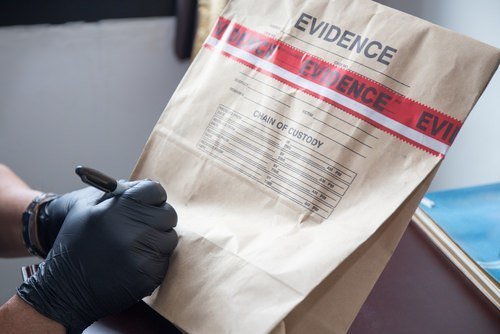
In State v. Sutton, the WA Court of Appeals held that, when answering a deliberating jury’s questions, a trial court has a responsibility to ensure that the jury understands the law.
BACKGROUND FACTS
Law enforcement executed a search warrant looking for evidence of drug trafficking at an address on in Newman Lake, Washington. At the property, they found the defendant Ms. Sutton and numerous co-defendants. The ensuing investigation led to Sutton and the co-defendants being arrested for the Kidnapping and Murder.
The State charged Sutton with first degree felony murder predicated on kidnapping, first degree kidnapping, and Leading Organized Crime. With respect to the charge of Leading Organized Crime, the State alleged that Sutton did intentionally organize, manage, and direct three or more persons with the intent to engage in a pattern of criminal profiteering activity, to-wit: Delivery of a Controlled Substance.
Sutton testified in her defense. She admitted she sold drugs, but denied she sold drugs or directed the co-defendants to commit any crimes.
During deliberations, the jury forwarded a written question to the judge. “For instruction #25, must the defendant have organized (etc.) all three of the listed persons specifically, or just any 3 or more persons (as instruction #24 states)?”
The judge asked counsel for suggestions on how it should respond to the jury’s question. Both the Prosecutor and Defense Counsel agreed the answer was, “Yes.” Ultimately, the trial judge decided that the best answer was to simply direct the jury to refer back to its instructions. Soon after, the jury returned guilty verdicts.
Sutton appealed her conviction on arguments that the trial court abused its discretion by declining the proposed defense jury instruction that accurately stated the law.
COURT’S ANALYSIS & CONCLUSIONS
The Court of Appeals began by saying that Defendants are guaranteed a fair trial under the Sixth Amendment to the United States Constitution, which requires jury instructions that accurately inform the jury of the relevant law. Furthermore, CrR 6.15(f)(1) permits trial judges to give the jury supplemental written instructions on any point of law after deliberations begin. This is done to ensure a jury is informed of the relevant law.
“A trial court should ensure that the jury understands the law . . . When it is apparent the jury does not understand the law, the trial court may and should issue a supplemental written instruction. A failure to do so is inconsistent with its responsibility to ensure the jury understands the law and risks the jury rendering a verdict contrary to the evidence.” ~WA Court of Appeals
Next, the Court of Appeals addressed whether the trial court should have given a supplemental instruction to clarify the law. It raised and dismissed Mrs. Sutton’s arguments that under State v. Backemeyer, a trial court should ensure that the jury understands the law. “Backemeyer is distinguishable from this case,” said the Court of Appeals. “There, it was clear that the jury misunderstood the law. Here, the to-convict instruction was clear.”
The Court further reasoned that the jury’s question did not create an inference that the entire jury was confused or that any confusion was not clarified.
“At a minimum, the jury’s question showed that some jurors wanted assurance they need not be concerned about the different wording in instruction 24. And because the trial court has a responsibility to ensure that the jury understands the law, it should have answered the jury’s question. It could have answered: ‘To convict Sutton of leading organized crime, the State must prove the elements of that crime as set forth in Instruction 25 beyond a reasonable doubt.’ Nevertheless, the trial court’s decision not to answer the jury’s question was not an abuse of discretion.” ~ WA Court of Appeals.
With that, the Court of Appeals upheld Sutton’s conviction.
Please contact my office if you, a friend or family member are charged with a crime. Hiring an effective and competent defense attorney is the first and best step toward justice.















